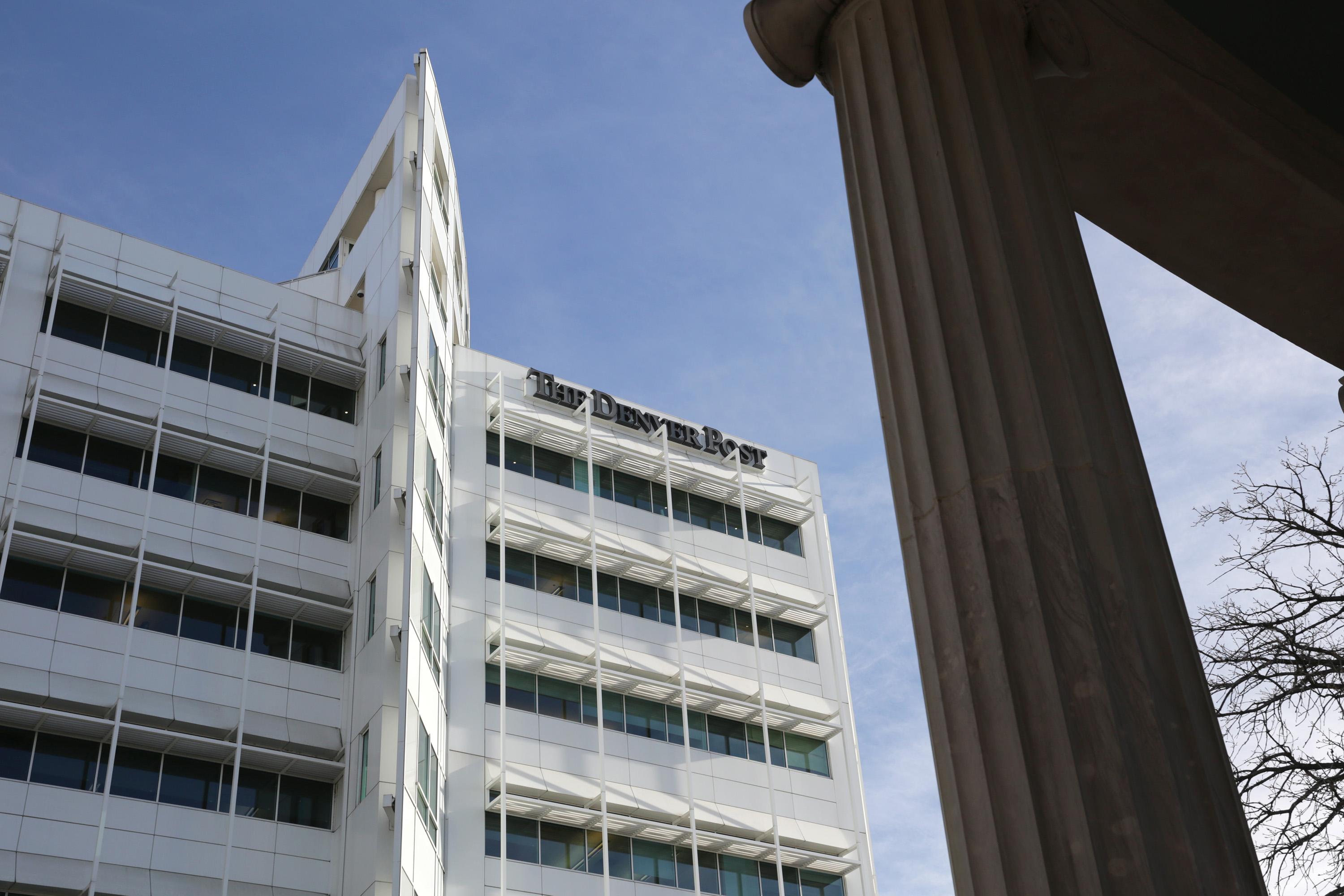
Denver Post editorial page editor Chuck Plunkett led the charge in his own newspaper’s rebellion against its corporate owners Alden Global Capital on Sunday. His own editorial and a flurry of opinion pieces from current and former journalists and others denounced the owners in the face of repeated layoffs.
"If Alden isn’t willing to do good journalism here, it should sell The Post to owners who will," Plunkett wrote.
He tells Colorado Matters what led to the rebellion that made the front page of The New York Times, including the misperception that the Post is losing money, and where he thinks the battle will go from here.
Interview Highlights
On His Decision To Publish The Op-Eds:
"I'm in a position, because of the fact that I'm the editorial page editor, to say something that could matter. Shouldn't I use that position? It's not a situation that a human being finds themselves in very often. And it was hard to think of what to do. But if you read what the experts say, and you rely on your gut experience ... having watched the newsroom downsize in these strange ways, you realize that if you don’t speak up now, you’re going to lose your chance and you’re going to be writing your own obituary."
On The Effects The Op-Eds Have Had:
"It set off a nerve. Hopefully there's a willingness on the part of [Digital First Media] and Alden [Global Capital] to rethink. Maybe they are rethinking things a little bit. Maybe the fact that I'm still here is a signal that they got the message."
On How The Post Has Tried To Expand Beyond Print:
"We have adapted and we have innovated. And we have created exciting online presences and products. We just started a digital paywall trying to get folks accustomed to the idea of supporting the Denver Post through a digital subscription so we could wean ourselves off of print. I think that's the direction you want to go, not immediately diminishing your quality by a large degree as soon as you put the paywall up."
What His Sales Pitch Would Be To A Potential New Owner:
"A newspaper is a wonderful thing to own. It's a proud part of the American tradition. And it's a proud part of what makes our democracy work. ... The fun that you would get to have and the good that you could do is worth the investment."
Read The Transcript:
Ryan Warner: This is Colorado Matters from CPR News. I'm Ryan Warner. Over the weekend, Chuck Plunkett: Hey, thanks for having me, Ryan. RW: Where are you right now? What's around you? CP: I'm in a small office that's a little quieter than it should be today. Yesterday was the last RW: That is to say, the Denver Post offices, the newsroom feels a bit emptier these days. Or, a CP: That's right. RW: I'll say that the first round of these layoffs was yesterday and your editorial asked the CP: I have not heard directly from either of those entities. Digital First Media tends to be the RW: Do you hold out any hope that Alden will reverse course and perhaps start hiring again? CP: Well, I don't have a lot of hope for that. I try to be optimistic by nature, and when I look at It's folks who are hyper-educated, who have money to spend. It's a town that is considering or is RW: And yet, we hear, Chuck, so often about newspapers losing revenue. Given that, wouldn't CP: I don't disagree with that. This is a nuanced subject. Right now, print continues to be what RW: Indeed. CP: ... so that we could wean ourselves off of that print. I think that's the direction you want to RW: So, I guess I hear you saying that you don't think the cuts at the Denver Post are fully, CP: That's correct. RW: Okay. CP: I look at other cities that have papers that are larger than ours, newsrooms that are larger RW: Chuck Plunkett, editor of the editorial pages at The Denver Post. I understand you didn't CP: It's been a real emotional experience, and you know, last Wednesday as I was gearing up to So that just put me in kind of a brutal debate with myself. I'm in a position because of the fact RW: Are you surprised you have a job today? CP: Well, yeah. I am in some ways, but then again, because that was a pretty out there thing to RW: You said in your editorial, "If Alden isn't willing to do good journalism here, it should CP: It takes a combination of a long term perspective. It takes capital. It takes capacity, then, RW: You reflected on the digital innovations at The Denver Post lately. Do you have someone CP: I don't have a human being or set of human beings in mind, other than it would be great if RW: You know, that analyst, Ken Doctor, who's associated with the Nieman Journalism Lab, CP: Well, look at what you're gonna get. A newspaper is a wonderful thing to own. It's a proud And Colorado is a real can-do kind of place. Denver is a can-do kind of place. Part of it has to And we have so much potential, and wouldn't you want to be a part of that, from the RW: Thanks for being with us. CP: Thank you for having me. RW: Chuck Plunkett, editorial page editor for The Denver Post. Over the weekend, The Post |









